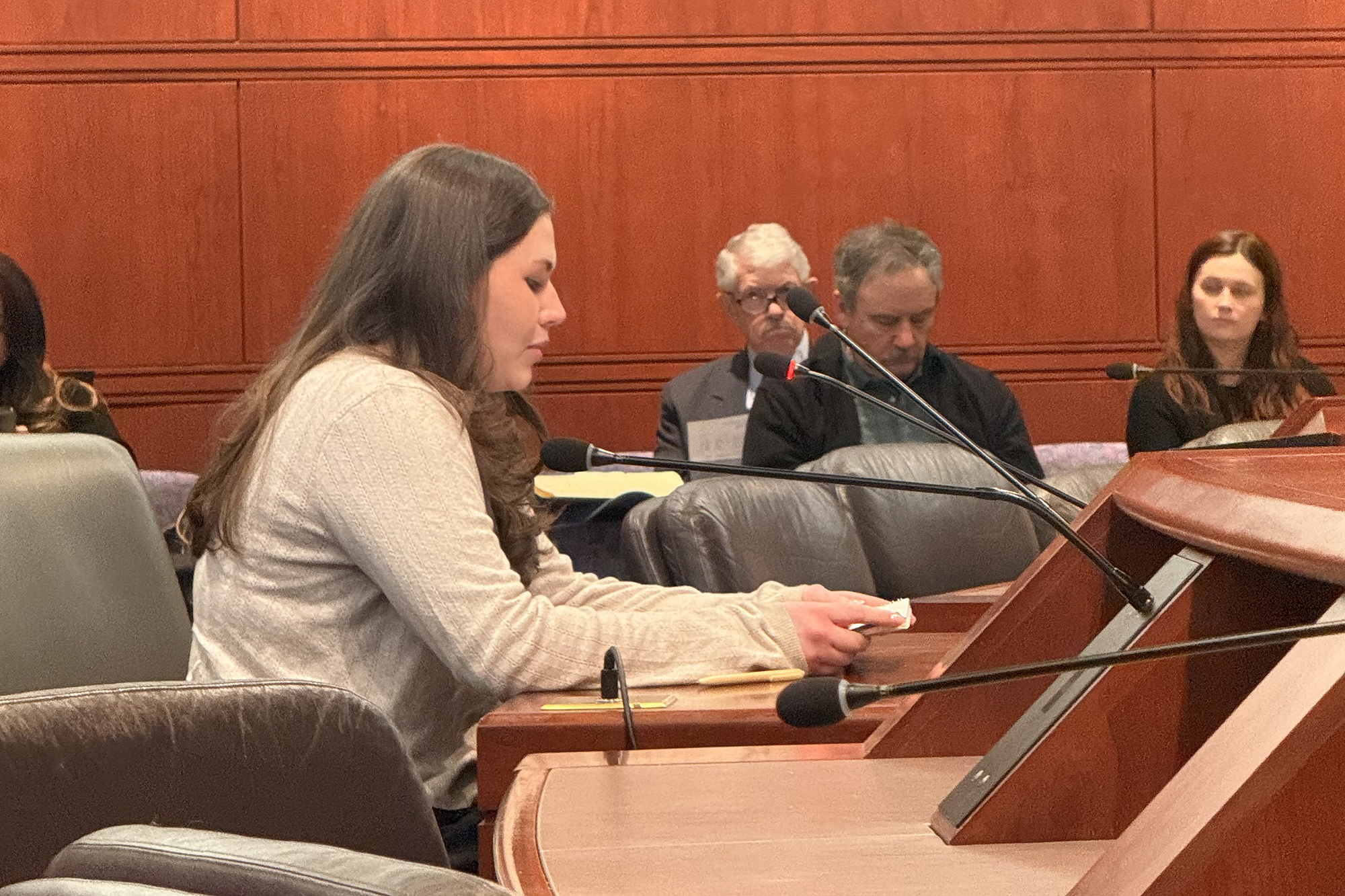
Sure, having one of the world’s most advanced computers creates great bragging rights – but it’s an entirely different proposition to harness that technology and commercialize it to solve real-world business problems. For IBM, that’s where the University of Connecticut School of Business and other higher education partners come in.
IBM, developer of the “Watson” computing system best known for beating human contestants on the television game show “Jeopardy!,” has turned to student teams at UConn’s Stamford Campus for ideas on using Watson’s vast inventory of unstructured data to create business recommendations.
IBM invited the UConn School of Business and its Stamford Learning Accelerator earlier this year to create and propose plans on how Watson could be used in particular industries to help them solve productivity problems, advance their research, and become more profitable.
While IBM has held similar competitions previously, what distinguishes the UConn project is that the corporate giant proactively invited UConn’s participation without a competition, and worked with the students all semester from concept to completion of the plans. Only one other university, Michigan State, has received a similar invitation, though IBM is also working with six other U.S. universities through case study competitions.

A team of high-level IBM Watson executives even came to UConn-Stamford one Saturday in October to discuss progress with UConn students midway through their research, and returned again on Dec. 5 to hear the student teams present their final research and recommendations.
For the students, it was the culmination of a highly demanding full-semester class created by UConn marketing professor Girish Punj with the resources of the Stamford Learning Accelerator’s experiential learning lab.
For IBM, it’s the start of a review process that could launch new initiatives and new projects with other industries.
A productive partnership
UConn and IBM have collaborated on other initiatives in the past, including recent work by the School of Business to develop its master of science degree in financial risk management. John Elliott, dean of the School of Business, said IBM’s participation in that process and its commitment to the students’ Watson proposals exemplifies the kind of partnerships UConn envisioned when it created the Stamford Learning Accelerator.
“One of the things we look for is an organization that cares enough about the problem and is invested enough in the notion of student engagement to actively put talent on the table and work with us,” Elliott said. “This is an example of what we try to do broadly to relate to the business community, ensuring what we’re doing is on the cutting edge of what the business community needs and wants.”

In the case of the Watson projects, the students are following up their Dec. 5 presentations by providing detailed reports to IBM officials to share with others at the corporation.
The Watson computing system came into the public eye in early 2011 when it defeated two of the most highly successful players in “Jeopardy!” history on that ABC-TV quiz show.
Questions are posed to Watson in natural speech, as opposed to computer programming language, and the computer searches its vast archives of information from encyclopedias, news articles, Internet pages, and other sources for possible solutions, and narrows them down with subsequent questions. Although the information comes from disparate sources, pulling their common elements together can result in solutions that otherwise might have taken countless hours and intensive manpower – or might never have been found at all.
The UConn teams, comprising a blend of full- and part-time students with a variety of backgrounds, were tasked with presenting ideas to IBM executives on how the Watson technology could be commercialized, essentially acting as part of the IBM Watson commercialization team.
The first team focused on integrating Watson into the pharmaceutical industry, a financially attractive sector and potentially a natural partner for work that IBM is launching in a partnership with Wellpoint to crunch data that can help suggest treatment options and diagnoses to doctors.
In the pharmaceutical industry, Watson’s technology could help companies as they reposition their existing drugs in “new indications,” in which compounds in drugs meant for one condition are re-purposed to help in other conditions.
Watson’s technology could also help pharmaceutical companies in the process of protecting patents from litigation.
The second team presented ideas to the IBM officials on how Watson could make customer call centers more efficient by helping operators get accurate answers more quickly, helping companies with recruiting and retention, and retaining vast stores of data on previous answers so the companies don’t lose institutional memory when employees leave.
Sophisticated solutions
IBM officials who attended the Dec. 5 presentations were so impressed that they encouraged the students to send resumes and to consider the corporate giant in their career searches.
“What impressed me is how well you took Watson and applied it to the problem,” Stephen Gold, worldwide marketing director for IBM’s Watson Solutions, told the students. “What you’ve picked up here are the subtleties of how Watson could be used.”
Bill Hume, director of Watson Core Technology for IBM, shook his head slightly in wonder after the presentations, and said the UConn students delivered exactly the level of sophistication and detail the corporation is seeking.
“I just think it was fantastic. You hit on all of the deliverables we suggested and you did it really well. I’m very impressed,” he told the students.
One of the executives who worked with the student teams and attended the Dec. 5 presentations is no stranger to UConn: Peter Bouchard, an IBM Distinguished Engineer in its Watson Solutions division, is a UConn alum who received a bachelor’s degree in business in 1978 and his MBA in 1980.
The Stamford Learning Accelerator at UConn-Stamford, through which the students did their work, is among several successful experiential learning models at various School of Business locations. In each, UConn blends its constantly updated business curricula with projects intended to immerse students in real-world experiences.
The Watson project also gave students in the Stamford Learning Accelerator a chance to learn from each other’s varied experiences.
Some are part-time MBA students working in a wide variety of careers, while others are full-time MBA students, and one is an undergraduate. Most are based at UConn-Stamford, but a few come from the Storrs and Greater Hartford campuses, too.
“We were able to collectively use each component that each person brings to the table and come up with good ideas for the sample use cases,” said Donald Butts ’13 MBA, an acoustics engineer who is pursuing his degree part time.
Asked what they would tell other students about the experience, Tiffany Betz ’14 MBA said they can expect to be challenged and inspired in equal parts.
“I would tell them it’s a lot of work,” said Betz, a part-time MBA student who is also the web content specialist for the American Institute for Foreign Study in Stamford. “You have to learn a lot about the project and its objectives before you can even begin to develop your ideas, but it was really rewarding. I feel like I’ve learned so much.”
In addition to Butts and Betz, other UConn students who worked on the IBM Watson project teams are Thomas Jose ’13 MBA, Anna Jakubek ’14 MBA, Robert Johnson ’13 (BUS), Siddhartha Sharan ’13 MBA, and Anu Jose ’13 MSBAPM (master’s in business analytics and project management).


